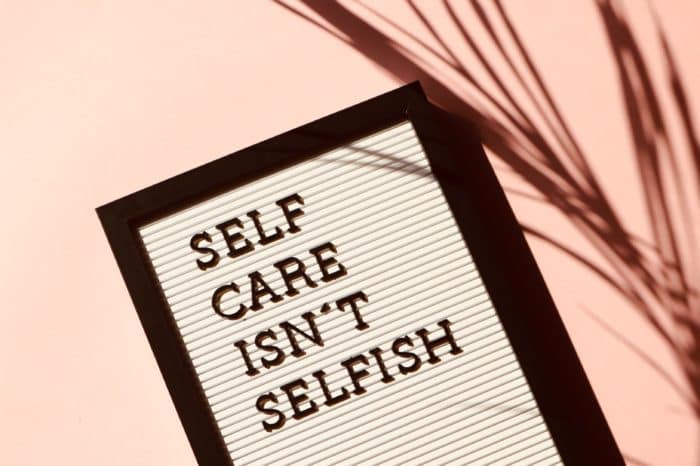How to Model Self-Care in a Time of Loss

By Tracy Hart, LCMHC
Families are often advised to support children in stressful times by offering one-on-one quality time, affirming words and encouragement. This is sometimes described with the image of “filling your child’s cup.”
However, many parents are finding it difficult to consistently provide these emotional resources in the face of daily stressors created by the COVID-19 crisis and remote schooling. Right now, most adults are feeling stretched thin and need to find ways to replenish themselves. As the saying goes, it’s impossible to pour from an empty cup.
Families may wonder how to demonstrate the importance of self-care as an important life lesson for their child or teen, given the challenge of maintaining our own self-care in the midst of a pandemic. It may help to start small and keep it simple. Here are some approaches to modeling self-care at a time when our typical self-care options may feel out of reach.
Find just one minute for self-care
Make a list of simple comforts — anything from putting on lavender hand lotion to turning up your favorite feel-good song. Now circle the ones that can take just a minute or two to add an element of relaxation or fun to your day. You may want to pencil them into a planner or put a recurring reminder in your phone. Small self-care habits can add up! Even on days when it’s not possible to take a substantial break from adult responsibilities, take a moment or two to offer yourself a caring moment.
Make it a healthy habit
Just as we teach healthy physical habits like brushing teeth or washing hands, we can show children that it’s important to take time to relax and feel good every day. Encourage your child to write or draw about the things that make them feel happy and peaceful, such as swinging, cuddling, or singing. If possible, you might designate a time in their daily schedule when they can pick a favorite happy activity to enjoy. You may even want to do it together!
Gather your supports around you
Self-care is most effective when it is part of a larger picture of community care. If you were to map out your support system, what caption or nickname would you assign to each support person? Notice which person you would turn to if you needed to vent about work, if you needed someone to help problem-solve, etc. Some people find it helpful to create a self-care pact with close friends and family, including a plan for scheduled check-ins. Reducing isolation can go a long way toward easing the stress of a difficult time.
Consult with a grief counselor
Kids Path offers free phone consultations about how to help children and teens cope with death or severe illness. Call 336-621-2500 (Greensboro) or 336-532-0100 (Burlington) and ask to be connected with a Kids Path counselor.
Tracy Hart is a children’s counselor on the Greensboro campus.

